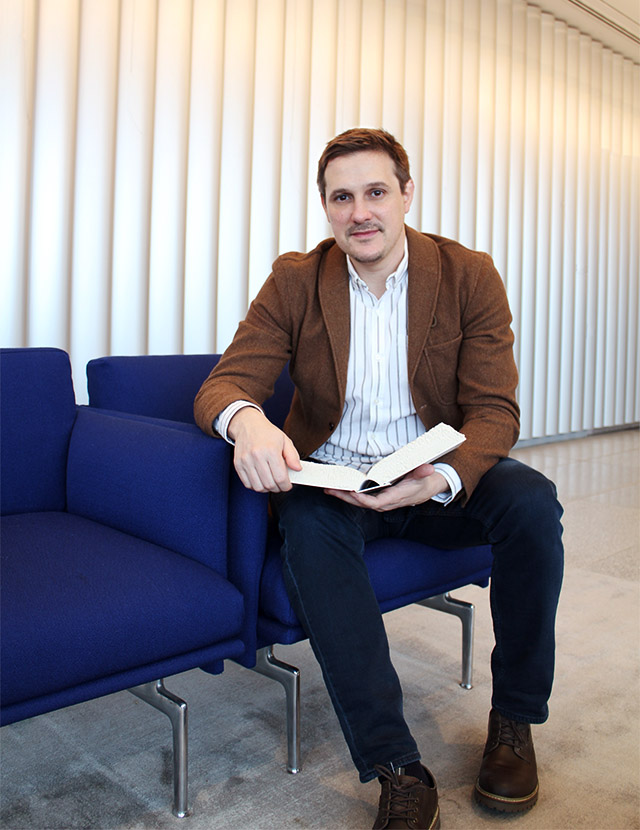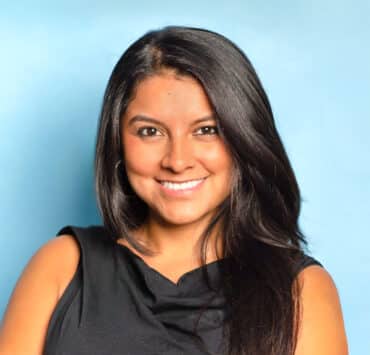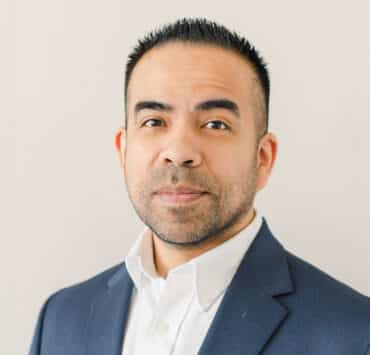|
Getting your Trinity Audio player ready...
|
Santiago Herrera has made “forge your own path” his own. For him, it means to be adventurous, courageous, and to stay true to yourself.
This impetus led him through unconventional roads, first to Chicago and Northwestern University, when most of his big law colleagues in Buenos Aires were heading to New York. Then he moved to North Carolina, his happy place, when most of his classmates were applying for jobs in New York or Miami. And then Herrera moved to New York after earning his JD, eventually joining Goldman Sachs in 2021, where he leads most negotiations in the complex and volatile area of finance as vice president and counsel.
When thinking about his career, he goes back to Buenos Aires. The skills he developed at Bruchou and Errecondo, two large law firms there, were formative experiences for him.
“I learned all my ‘tricks’ back then—how to connect with people and build rapport, the power of smile, how to be analytically thorough, how to be nimble and efficient,” Herrera says. “Even if the law and the practice are very different here, I’m still doing what I was doing down there and sharing it quite vocally with my mentees.”
Herrera practiced law for a few years in Argentina, through the “reverb” of the 2008 financial crisis and applied for a scholarship at several law schools in the US to obtain his Master of Law.
Even though New York was a safer bet and he had family in California, he chose Chicago to be closer to the heartland, to immerse himself in American culture. He chose Northwestern Law to study in a more collaborative environment. He fell in love with Chicago and Northwestern, and it was there when he understood he could make a good US lawyer. He studied hard, honed his interviewing skills, and went to New York to find a job.

Sadly, most large law firms there hire foreign-trained lawyers based on current international workflow or business development plans. “They want great candidates, don’t get me wrong,” he says. “But they are most interested in candidates that come from markets where they are active or intend to become more active.”
In 2013, when he was interviewing, there was little transactional work coming to New York from Argentina, so law firms were hiring from other Latin American markets. Fortunately, a partner explained this to him and shared a few contacts in North Carolina, where one of his best friends from Buenos Aires, also a lawyer, had been living for a few years now. He was skeptical but packed his bags and left to meet with partners in Charlotte, Winston-Salem, and Raleigh.
“It was so encouraging,” he says. “These partners were asking about my career plans, where I wanted to go, [and were] not as interested on where I came from.”
He spent two years working at Womble, a large law firm in North Carolina, before applying for a two-year JD for international lawyers that Wake Forest launched in 2015.
“[It was] perfect timing” Herrera says. “Some of the most interesting legal experiences I had took place at Wake Forest. The professors created the most exciting atmosphere to think critically and learn collaboratively.”
He also recalls the rather theatrical and compelling lectures of Stephen Presser, a professor at Northwestern who helped him when he had to resort to an appeal-like process to rescue his work visa. “I should also mention at this juncture Penni Bradshaw, the most amazing immigration attorney. I wouldn’t be here if she had not taken a chance on my case,” he notes. “And Patricia Menendez Cambo, back then a partner at a global law firm. Like Professor Presser, she sent an industry letter in support of my visa application.”
Herrera explained this is rather emotional for him, and that he feels immense gratitude to many people that helped him along the way. “My parents. They somehow trusted I could do this.”
In his current role at Goldman Sachs, he never expected to be so fulfilled and challenged. He can “nerd out” on legal issues for hours; work with teams across the globe; get coffee with bankers and people in risk, ops, or client services; and promote proactive inclusion, vocal support, and consistent warmth, which he proudly considers typical Latino values.
“As I look back at my career, I realize most of my achievements are the result of hard work and resiliency, of course, but being a nice person and a positive influence played a significant part too,” Herrera says. “I care first and foremost about being a nice person. This was instilled by my parents early on, it’s my goal in life, and I see how it helped my career. If people like you, if you’re generous and pedagogical, they’ll keep coming. This is key for lawyers who often have to say no.”

